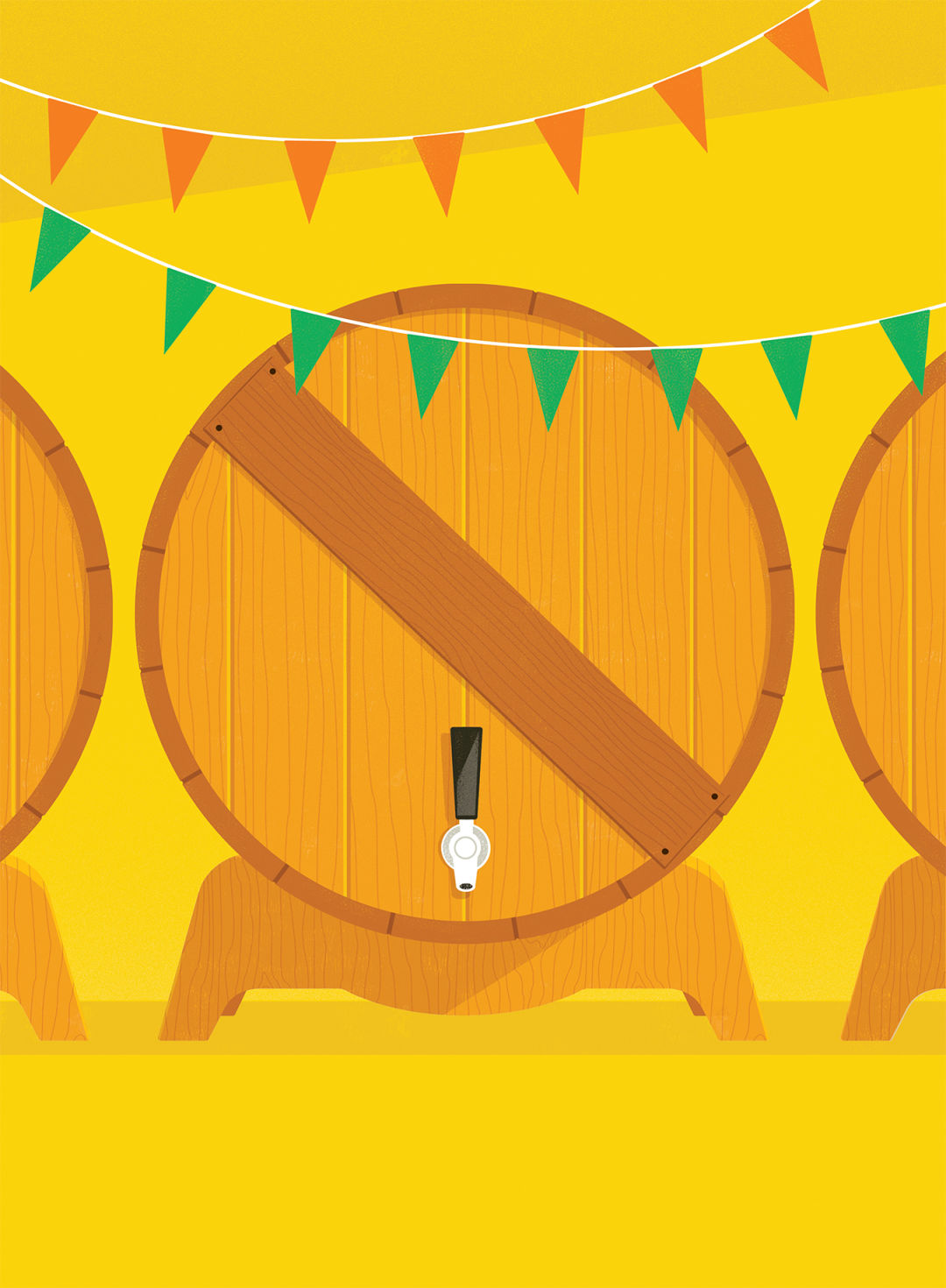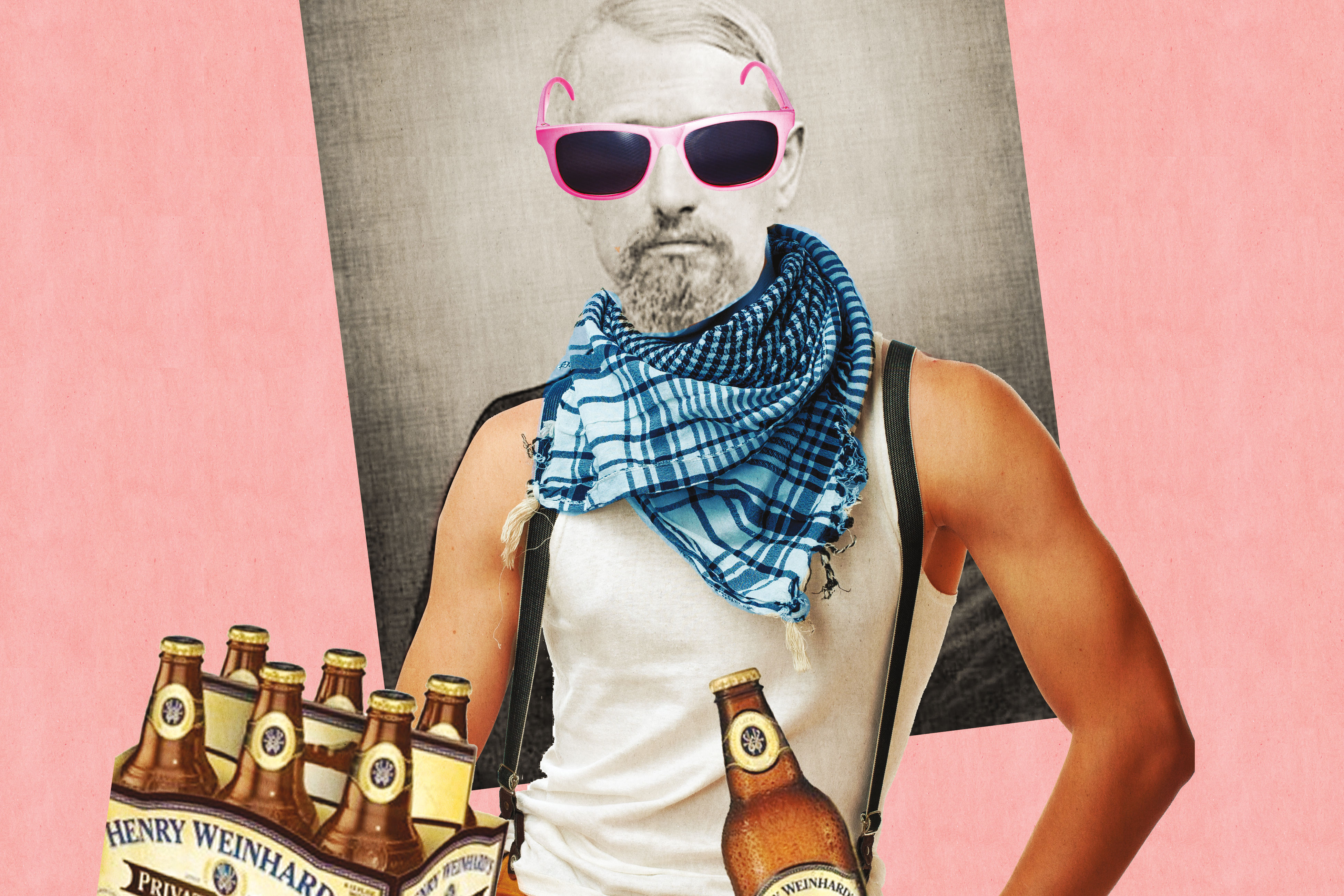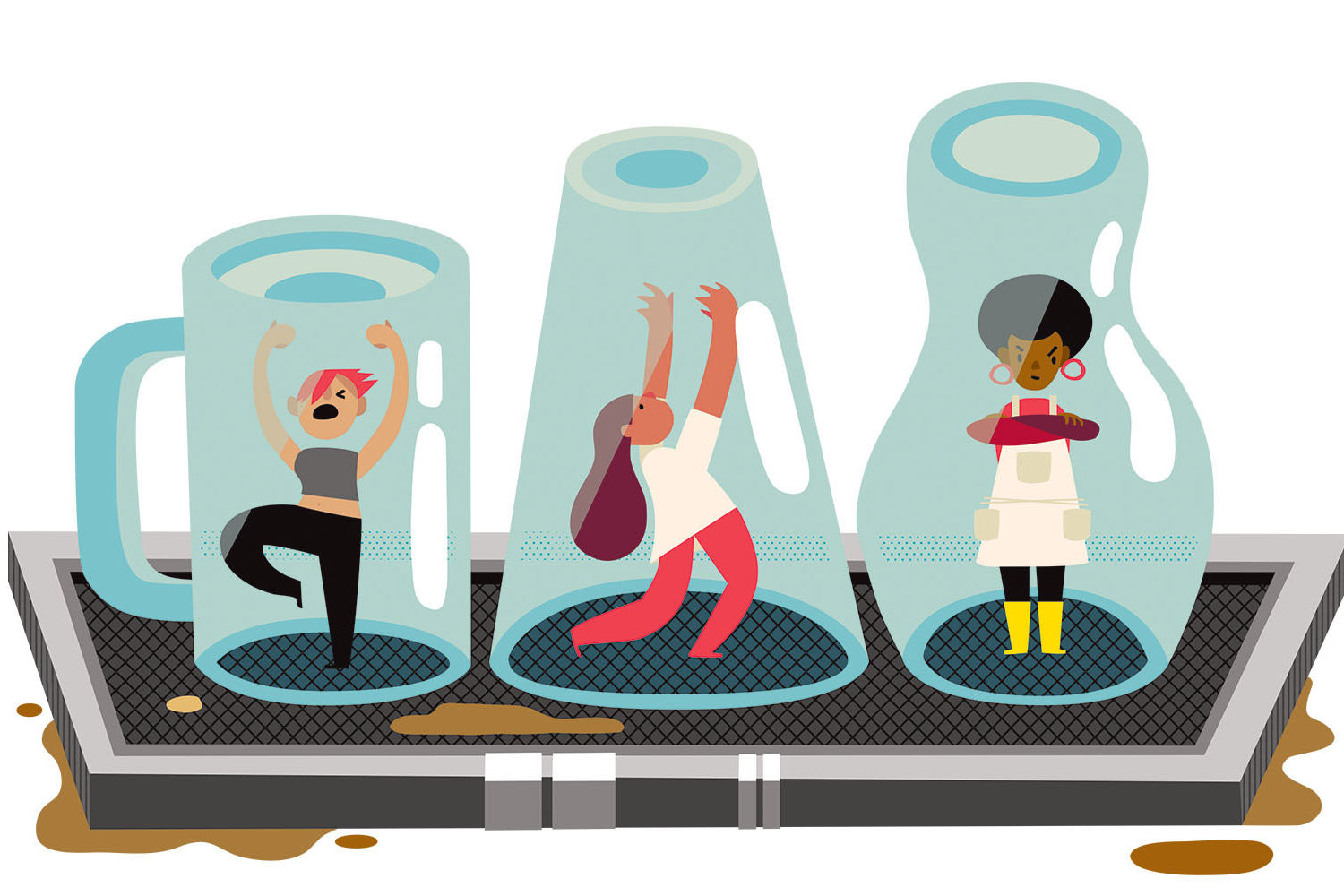What Does a Canceled Oregon Brewers Festival Mean for Portland?

Image: Chris Gash
The Oregon Brewers Festival debuted on a sunny Saturday in July 35 years ago, in the recently christened Gov. Tom McCall Waterfront Park. It was beset by logistical problems typical of first-time events: The beer coolers weren’t working, so the beer got warm and foamed when it poured. Organizers had planned for 5,000 people to show up, but three times as many did, and the foamy taps ran dry. Local brewers scrambled back to warehouses for additional kegs. By our modern standards, it was a puny affair—just 22 breweries from around the region serving 50 beers. Despite all that, it’s easy to make a case that the city we would soon call Beervana was born that day.
At the time, Portland had only four small breweries operating in the shadow of relative giant (or dinosaur) Blitz-Weinhard, and there were just two others elsewhere in Oregon, so finding their beer wasn’t as easy as it is today. While there was a sense of excitement about what people then called “microbreweries,” it hadn’t coalesced into a belief that Portland was a beer city—or the beer city. The Oregon Brewers Festival, in gathering them together with a smattering of other pioneers in the West, revealed a movement gaining force. For once, Portland seemed like a nexus of something important. In the three decades that followed, the city became one of the most vibrant homes in the country for local brewing, and beer soaked into our civic identity as much as trees, coffee, sneakers, and semiconductors.
That’s why, when event cofounder Art Larrance and other organizers announced in January that the Oregon Brewers Fest wouldn’t be returning in 2023, it felt like an earthquake. (Larrance later shared that the event would return in some form as part of Rose Fest’s CityFair in early June.) Just two months earlier, OBF’s cold-weather cousin, the Holiday Ale Festival, had canceled its 2022 edition. The pandemic dealt these fests serious blows, but crowds had been declining well before that. In recent years, the OBF rejiggered its offerings, trying to coax the throngs back to Waterfront Park. After a disastrous 2022, when the weekend was visited by triple-digit heat, however, organizers seem to have given up. If the two signature beer festivals couldn’t make it in Portland, what did that say about Beervana?
For 30-odd years, the OBF may not have changed much, but the world around it did. Before it became an established tradition itself, the Holiday Ale Fest was the first event to usher in new thinking. In the 1980s, merely pouring craft beer was an exotic act, but by the late 1990s, the city was awash in local beer. The Holiday Ale Fest started asking participating brewers to bring beer made specially for that event, giving beer geeks a reason to step under the tents on dark December weekends. In 1988, the US had 200 breweries; by 2000, it had almost 1,600. People could find craft beer anywhere; what they wanted was something unusual.
Move another decade into the future, and beer fests continued to evolve, now starting to specialize. Ezra Johnson-Greenough, the founder of the New School Portland beer blog, organized one of the first and most successful new-gen events, the Fruit Beer Festival. Even longtime beer fans were skeptical that many people would be interested in a festival with such a narrow focus. “It was crazy,” he remembers. “That first year people thought we were nuts.” All the beer blew on the first day, and Johnson-Greenough had to scramble to find something to serve on day two.
Even breweries normally game for anything weren’t sure about brewing a full batch of beer and getting stuck with the kegs the fest didn’t order. “I remember trying to get Hopworks’ Christian Ettinger to try to brew a beer for it,” Johnson-Greenough recalls. “He was like, ‘OK, I’ll do it, but nobody wants a fruit beer.’”
Another festival from that era has grown into one of the most successful in the nation. The Festival of Dark Arts started in 2002 as a way to help locals survive a dark, wet Astoria winter. A decade later, Fort George marketing/sales director Brian Bovenizer and cofounder Jack Harris teamed up to bring it into its new form. “Jack Harris and I both went to a fest together, and I thought, I just kind of want more. I come from a music background, and I was tired of going to a beer line and standing back and having no other reason to be there.” Dark Arts focused even more narrowly on style—stouts—but added a theatrical and artistic component. Bands play throughout the day, with appearances from contortionists, throat-singers, and even a strongwoman.
Specialized festivals like those are now the norm in Oregon. Each fall, fresh hop festivals arrive to celebrate the locally grown key ingredient. Each spring, Away Days celebrates classic British beer with its Cask Ale Festival—helping encourage a revival in cask ale across the city. Portland has fests celebrating nanobreweries, doughnuts, sour and wild ales, and even one in which Portland and Japanese breweries collaborate to make beers.
The transition in festivals charts a course from general to specific—and that’s what happened with breweries as well. When the Oregon Brewers Fest was founded, breweries were offering a menu of different beer styles to appeal to the broadest audience possible. In 2023, customers know what they like, and breweries are more focused. Some cater to hopheads; others, lager fans. The one-size-fits-all beer festival is like the generic brewery; in trying to appeal to everyone, they risk appealing to no one.
The beer world has gotten more interesting in other ways, too. In 1988, no women were heading up brewing teams anywhere in Oregon (though Teri Fahrendorf would soon take the mash paddle at Steelhead in Eugene). Now women are a common sight in the brewhouse, thanks in part to SheBrew, a festival featuring female brewers that launched in 2013. Not only did it showcase the excellence of women brewers, but it attracted a different kind of audience.
“The festival itself is super family-friendly, and it’s also a completely different vibe than other beer festivals,” Jenn McPoland, one of the founders and organizers of SheBrew, told me on a recent podcast. “It’s super chill; it’s not bro-y at all. You find guys with babies strapped to their chest with their wife or their girlfriend having a beer next to them.”
Portland has long been on the leading edge of craft beer evolution in the United States, sometimes as much as a decade ahead of the rest of the country. On the one hand, that means the future arrives here first. On the other, sadly, the past may recede more quickly. Of those four Portland breweries featured in the first OBF, Portland Brewing, where Larrance was initially involved, and BridgePort have closed. Widmer Brothers was sold to Anheuser-Busch InBev, and McMenamins may be better known today as a quirky hotel chain than a brewery. In their place, however, have blossomed dozens of smaller breweries, some of them more lauded than any of the fest’s founders. Any given event may appeal to fewer people, just like the breweries they serve—but collectively they serve the needs of a far broader group of Portlanders.
The news that the OBF isn’t returning in its classic form was melancholy, but it’s not the end of Beervana—just the end of an era.




